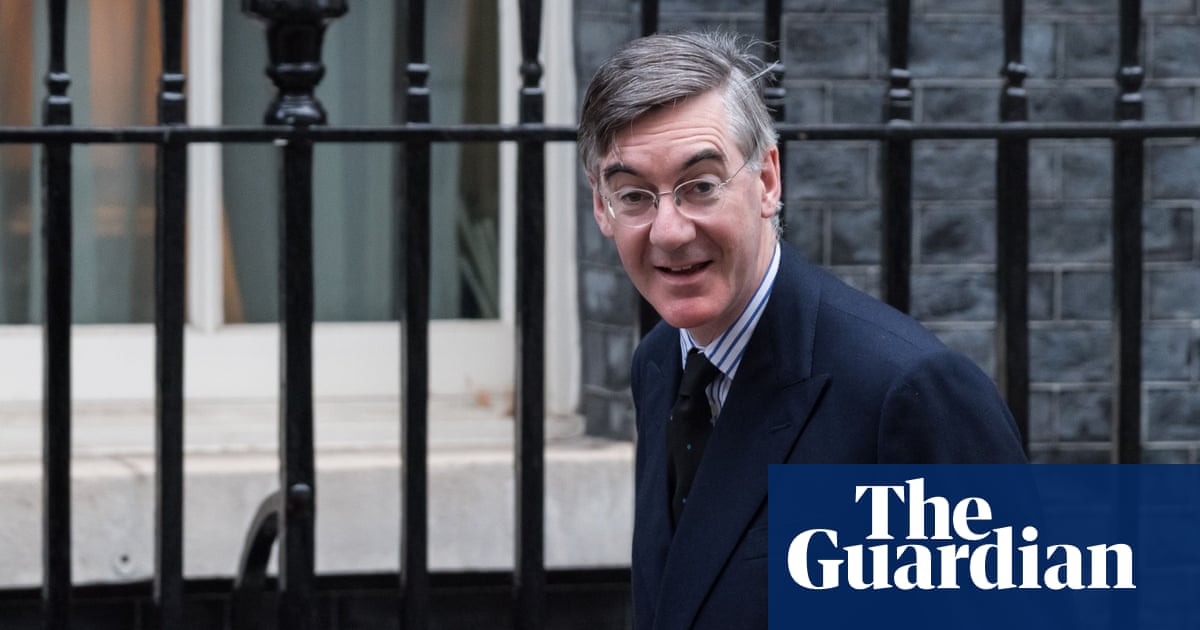
The UK cabinet secretary has ordered civil servants to urgently disclose any conflicts of interest amid what he called “acute concern” following the revelation that a senior official worked for Greensill while in government.
The instruction from Simon Case, head of the civil service, came as Conservative MPs voted to block a broader inquiry into the lobbying scandal surrounding the financial services firm Greensill.
But in a sign ministers were struggling to contain the most serious crisis over political ethics for years, two committees of MPs announced their own inquiries.
While the larger part of the controversy about the failed lobbying efforts to save Greensill Capital has attached to the former Tory prime minister David Cameron and the ministers he contacted, the focus moved to civil servants after it emerged that the senior official Bill Crothers worked for the company while also working in Whitehall.
Case met heads of departments across Whitehall on Wednesday morning, where a source said there was widespread anger about the revelation that Crothers worked as an adviser to Greensill in 2015 while employed as a civil servant.
In a follow-up letter, seen by the Guardian, Case ordered his permanent secretaries (the head civil servants in each department) to uncover all outside interests from senior officials by Friday and ensure they were declared and examined.
“Serious issues have come to light which are of acute concern for us as the senior leadership team of the civil service,” Case wrote, saying many colleagues would “take an equal view”.
Case said that although it was important to bring outside expertise into government, “this must only be done in a way which can maintain the integrity and impartiality of the civil service … in particular, there needs to be transparency and full and proper management of any outside interests”.
One Whitehall source said the department heads were “very, very, unhappy” to hear about Crothers’ double role and that there was “strong pushback” about the argument that this was not uncommon. There would be a proper trawl to find any other instances, the source added.
But Dave Penman, general secretary of the FDA union, which represents top civil servants, called the letter a deflection to protect ministers. “Will there be similar vigour with ministers in relation to their contacts with lobbyists, which is where this scandal started?”
The government announced on Sunday that it would set up a review into aspects of the controversy, to be led by the corporate lawyer and government adviser Nigel Boardman.
Labour condemned the proposed review as too limited, and said Boardman was too close to government and potentially compromised by his role as a nonexecutive director in the business department.
The party used one of its opposition day debates on Wednesday to push an alternative plan for a special cross-party committee of MPs to be set up to look into Greensill and the wider issue of lobbying, with powers to compel witnesses.
Ministers argued that such a committee would end up crossing over too much with existing structures; and, with Conservative MPs voting against the plan, it was easily defeated, by 357 votes to 262.
However, any hopes inside Downing Street of keeping the issue under the remit of Boardman were dashed even before the vote.
Speaking in the debate, the Tory backbencher William Wragg said the Commons public administration and constitutional affairs committee, which he chaired, could also examine the affair.
“Rest assured the committee is and will be giving these matters proper consideration,” Wragg said, referring to the fictional police anti-corruption unit in the BBC series Line of Duty by calling the committee “the AC-12 of Whitehall”.
And, as Johnson ordered MPs to vote down the Labour motion, a powerful committee announced it had reversed its decision not to launch an official inquiry and said it would now examine the regulatory failures leading up to Greensill’s collapse.
The Treasury select committee’s chair, the Conservative MP Mel Stride, said the committee would look at what lessons could be learned about the appropriateness of Rishi Sunak’s response to Cameron’s lobbying efforts, as well as that of Treasury officials.
Labour MPs on the committee said their original efforts to begin an inquiry had been blocked by the committee’s Tory majority.
Information released last week after a freedom of information request showed that Sunak, in response to Cameron’s “multiple” texts to his personal phone urging the Treasury to allow Greensill Capital full access to a Covid loan scheme, had replied to say he had “pushed the team” to see if that could happen.
Opening the inquiry debate, the shadow Cabinet Office minister, Rachel Reeves, said the Boardman inquiry was “wholly inadequate, and deliberately so”.
Reeves said: “It’s not independent, it’s barely an inquiry. It’s nothing but an insult.”
She said the Labour plan would create an independent inquiry “led by a team with the confidence of this house, not someone handpicked from the board of one of the government departments embroiled in this scandal”.
Tory MPs speaking in the debate unanimously rejected the Labour idea, even if many did express concern about the role of Cameron.
Even before the debate, the controversy had dominated prime minister’s questions, with Keir Starmer devoting all his allotted time to what he called “the sleaze that’s now at the heart of this Conservative government”.
The Labour leader added: “Is the prime minister aware of any other government official who had commercial links with Greensill, or any other lobbying role while working in government?”
Johnson replied by referring to the review, telling Starmer: “If he has any such information, he should of course make it available to Mr Boardman.”












